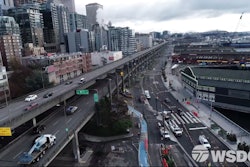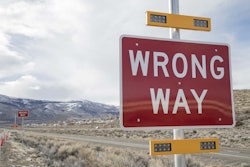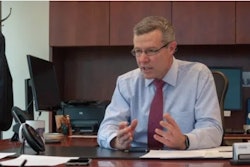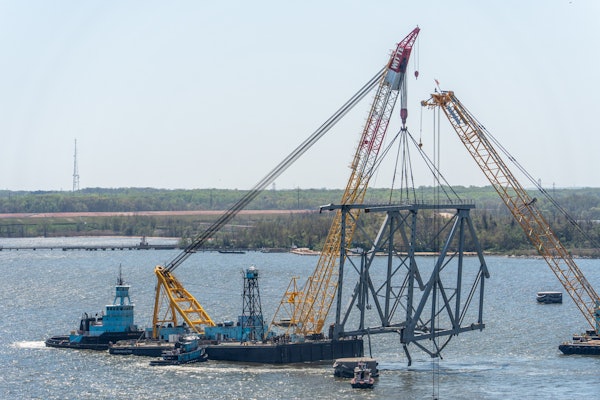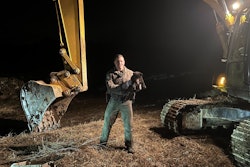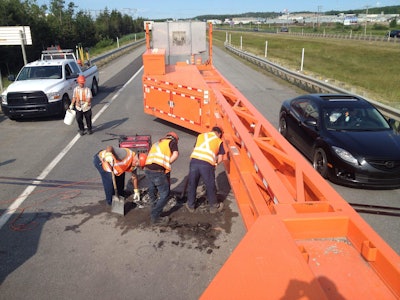 ARTBA’s petition says an antiquated federal procurement rule hinders state and local governments from buying new road products, such as the MBT-1 mobile barrier, designed to protect road workers, on federally funded projects.
ARTBA’s petition says an antiquated federal procurement rule hinders state and local governments from buying new road products, such as the MBT-1 mobile barrier, designed to protect road workers, on federally funded projects.Repealing an archaic federal procurement rule would remove a major regulatory roadblock and “spur investment in and deployment of new technologies that promise to help advance safety, alleviate traffic congestion and improve U.S. highways,” according to American Road & Transportation Builders Association (ARTBA).
That’s the message that ARTBA delivered to the U.S. Department of Transportation (USDOT) on January 14. The association petitioned last year to have the rule thrown out.
At issue, the association says, is 23 CFR 635.411, a federal regulation that prohibits state and local governments from using patented or proprietary products on highway and bridge projects that receive federal funding unless those products qualify for limited exceptions.
The rule, adopted in 1916 by the U.S. Department of Agriculture, which then managed the emerging federal-aid highway program, ARTBA explains in a news release.
“The status quo should never be an acceptable goal,” says ARTBA President and CEO Dave Bauer.
 Dave Bauer
Dave Bauer“The full repeal of an archaic rule will help open the marketplace to a wave of innovative products aimed at improving motorist safety and more efficiently delivering transportation improvements both the public and private sectors agree are necessary.”
ARTBA formally petitioned USDOT in March 2018 to repeal the rule. In response, the agency issued a “Notice of Proposed Rulemaking” in November 2018, asking the public to provide input by Jan. 14, 2019, on a plan to amend or repeal it, the association says.
In its comments to USDOT, ARTBA has emphasized the rule’s negative impacts on safety, competition and the upkeep of America’s transportation network.
The rule “impedes states from implementing proven and innovative safety measures that are cost-effective and shown to have meaningful benefits over existing products,” according to ARTBA.
Repealing the rule, Bauer told the agency, “will not only allow states the immediate benefit of innovative materials, devices, and other equipment, but also will drive innovation by sizably increasing the market for such products.”
ARTBA also cited examples of new technologies and products making positive safety impacts that are being deployed by industry firms such as Mobile Barriers, R.J Watson, HCB, Transpo Industries, Lindsay Transportation Solutions and Tensar.
Among them:
- The use of composite materials and disc bearings for bridges
- geogrids for trafficked surfaces
- moveable traffic barriers
- higher visibility signage and breakaway sign posts
The association addressed the key role of state transportation agencies, concluding: “Repealing the rule will give states the flexibility to consider all products, including those that are patented and proprietary. States will be free to choose whether or not to use patented or proprietary products based on their individual situations.”
ARTBA was assisted in the petition action by the Washington, D.C., law firm, Venable, LLP. The Venable team is led by former U.S. Secretary of Transportation James Burnley.
USDOT will evaluate all comments submitted and decide on a course of action. There is no timetable for the agency’s action, ARTBA says.
Established in 1902, the association represents the U.S. transportation construction industry before Congress, the White House, federal agencies, courts, news media and the general public.




